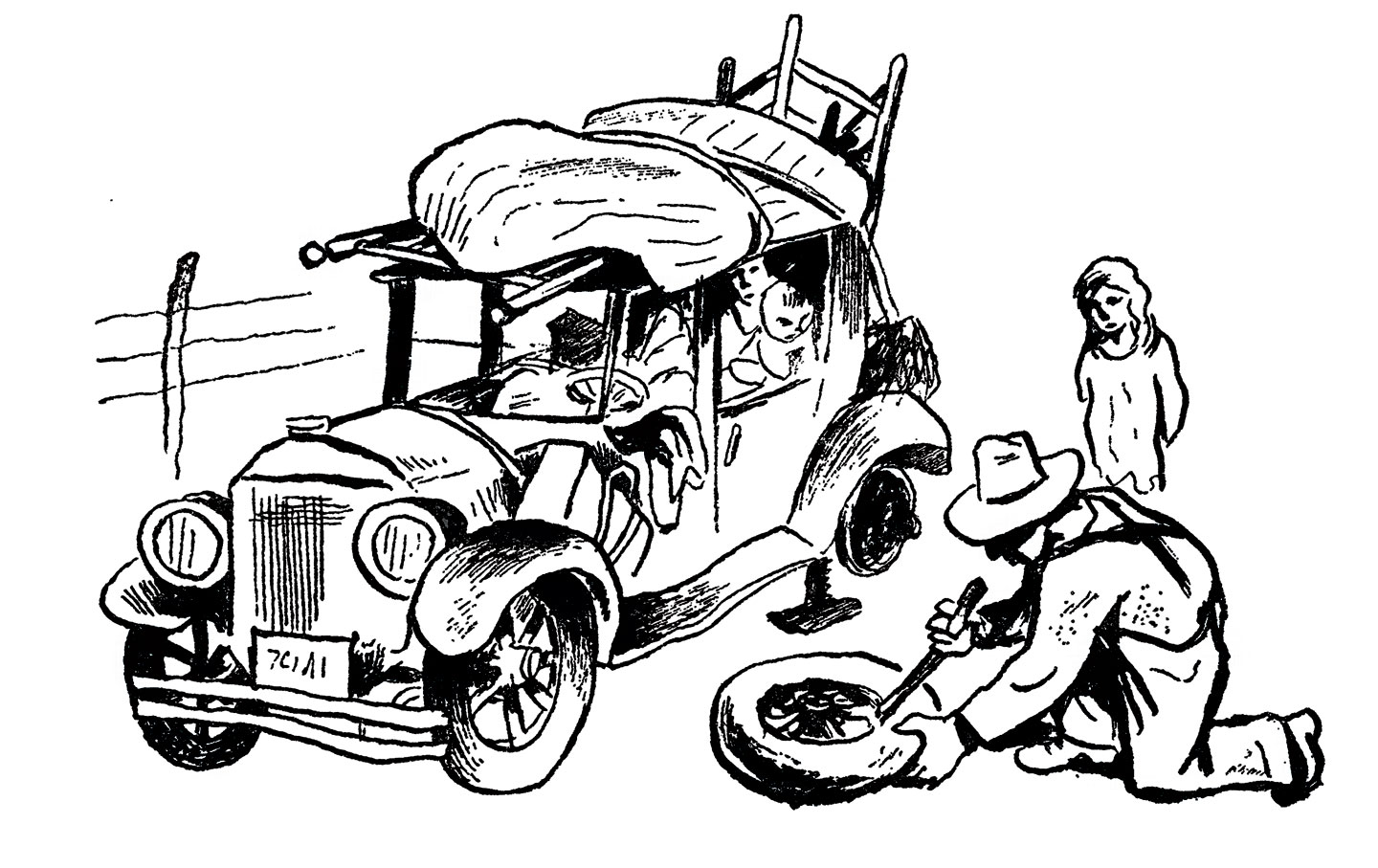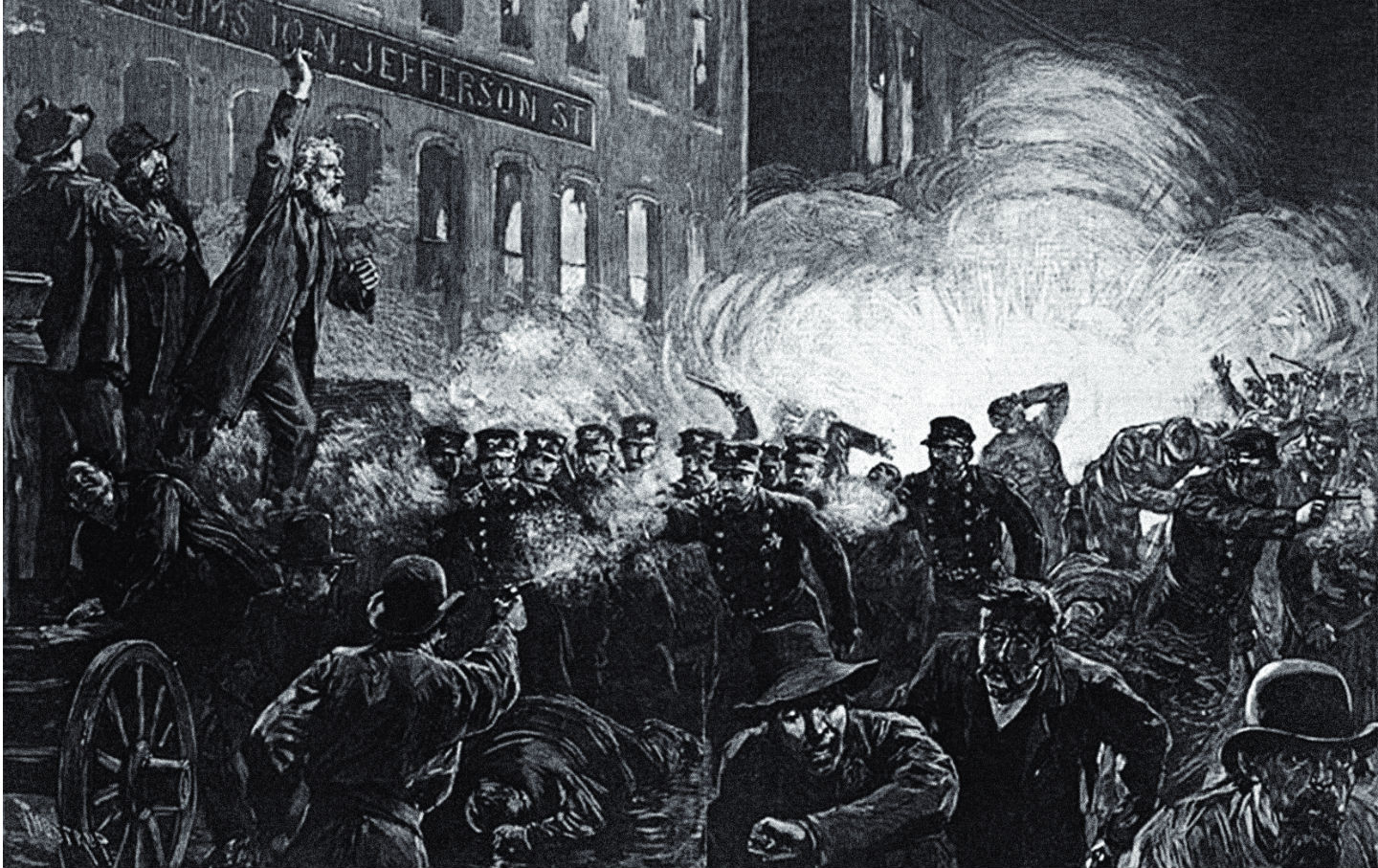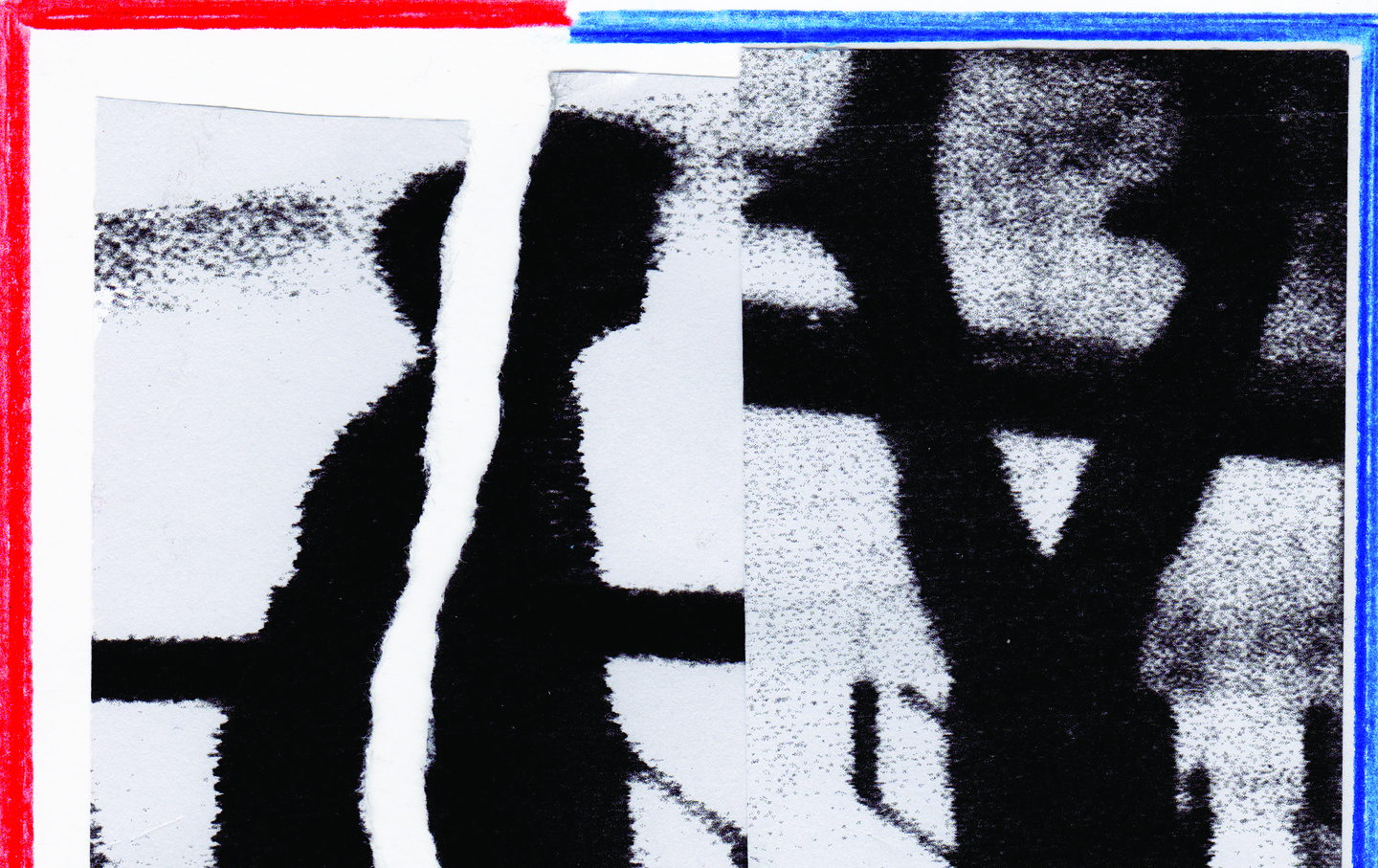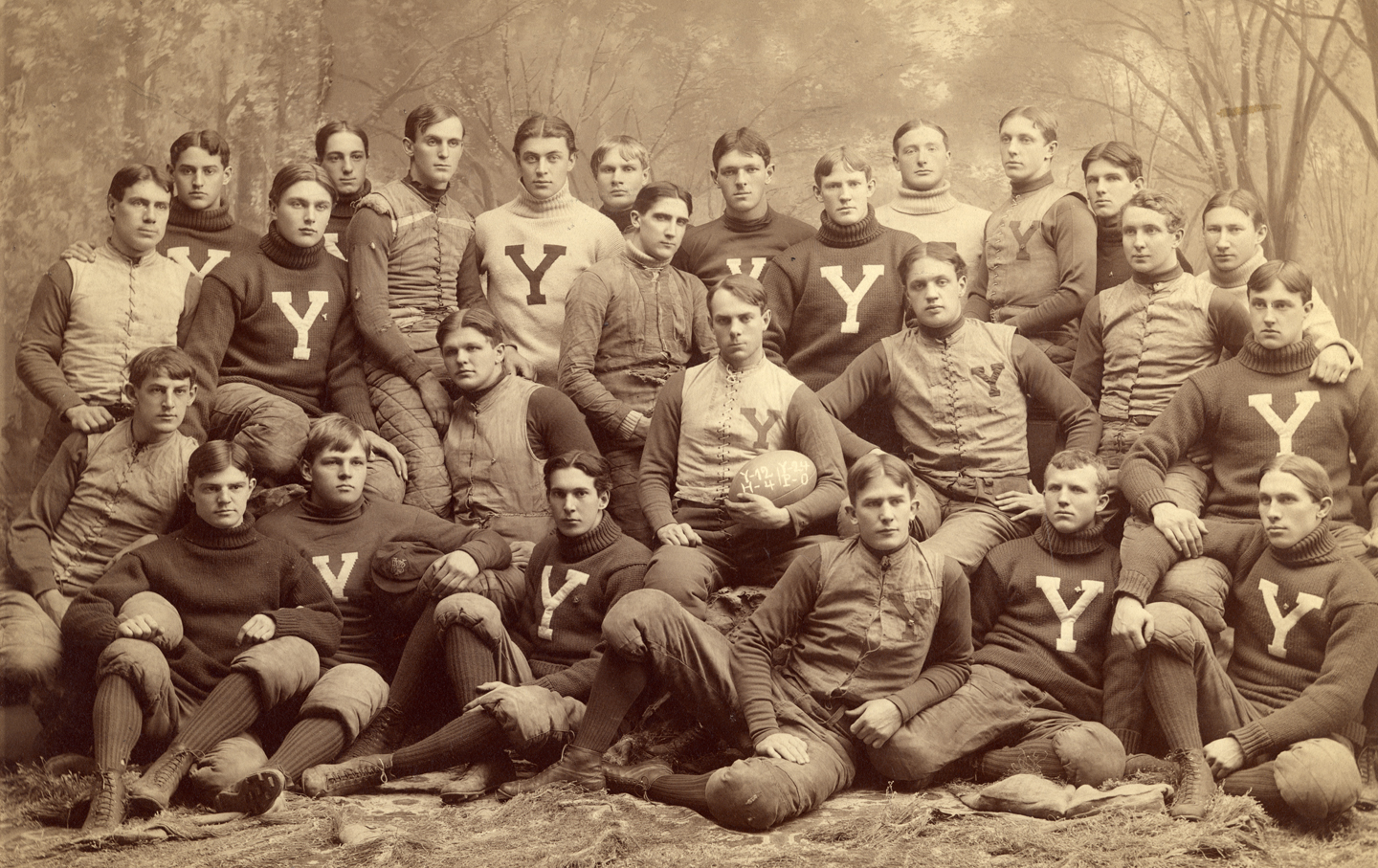
John Steinbeck on the Violent Repression of the Fight for Migrant Workers’ Rights John Steinbeck on the Violent Repression of the Fight for Migrant Workers’ Rights
We now know that workers are being attacked not because they want higher wages, not because they are Communists, but simply because they want to organize.
Mar 23, 2015 / Feature / John Steinbeck

When ‘Commentary’ Parroted ‘The Protocols of the Elders of Zion’ When ‘Commentary’ Parroted ‘The Protocols of the Elders of Zion’
Like it or not, Jews and homosexualists are in the same fragile boat, and one would have to be pretty obtuse not to see the common danger.
Mar 23, 2015 / Feature / Gore Vidal
Two Views of a Cadaver Room Two Views of a Cadaver Room
January 30, 1960 I The day she visited the dissecting room They had four men laid out, black as burnt turkey, Already half unstrung. A vinegary fume Of the death vats clung to them; The white-smocked boys started working. The head of his cadaver had caved in, And she could scarcely make out anything In that rubble of skull plates and old leather. A sallow piece of string held it together. In their jars the snail-nosed babies moon and glow. He hands her the cut-out heart like a cracked heirloom. II In Brueghel’s panorama of smoke and slaughter Two people only are blind to the carrion army: He, afloat in the sea of her blue satin Skirts, sings in the direction Of her bare shoulder, while she bends, Fingering a leaflet of music, over him, Both of them deaf to the fiddle in the hands Of the death’s-head shadowing their song. These Flemish lovers flourish; not for long. Yet desolation, stalled in paint, spares the little country Foolish, delicate, in the lower right hand corner. This article is part of The Nation’s 150th Anniversary Special Issue. Download a free PDF of the issue, with articles by James Baldwin, Barbara Ehrenreich, Toni Morrison, Howard Zinn and many more, here. Sylvia Plath (1932–1963) published four poems in The Nation between 1955 and 1960.
Mar 23, 2015 / Books & the Arts / Sylvia Plath

The Dream Life of Desire The Dream Life of Desire
Drawing a line between poetry and the political has never been simple.
Mar 23, 2015 / Books & the Arts / Ange Mlinko

1885–1895: Anarchists Are Vagabonds and Ruffians and Threaten Everything We Most Value on Earth 1885–1895: Anarchists Are Vagabonds and Ruffians and Threaten Everything We Most Value on Earth
There is nothing likely to prove so effective a deterrent as death.
Mar 23, 2015 / Books & the Arts / The Nation

Which Direction Is the American Parade Headed? Which Direction Is the American Parade Headed?
Marching with the American Legion during the New Deal.
Mar 23, 2015 / Feature / John Dos Passos

Can Women and Men Live Together Again? Can Women and Men Live Together Again?
I hope we might meet as rebels together—not against one another, but against a social order that condemns so many of us to meaningless or degrading work in return for a glimp...
Mar 23, 2015 / Books & the Arts / Barbara Ehrenreich
The Bear The Bear
April 18, 1928 The bear puts both arms round the tree above her And draws it down as if it were a lover And its choke-cherries lips to kiss goodby, Then lets it snap back upright in the sky. Her next step rocks a boulder on the wall. (She’s making her cross-country in the fall.) Her great weight creaks the barbed wire in its staples As she flings over and off down through the maples, Leaving on one wire tooth a lock of hair. Such is the uncaged progress of the bear. The world has room to make a bear feel free. The universe seems cramped to you and me. Man acts more like the poor bear in a cage That all day fights a nervous inward rage, His mood rejecting all his mind suggests. He paces back and forth and never rests The toe-nail click and shuffle of his feet, The telescope at one end of his beat, And at the other end the microscope, Two instruments of nearly equal hope, And in conjunction giving quite a spread. Or if he rests from scientific tread, ’Tis only to sit back and sway his head Through ninety-odd degrees of arc it seems, Between two metaphysical extremes. He sits back on his fundamental butt With lifted snout and eyes (if any) shut (He almost looks religious but he’s not), And back and forth he sways from cheek to cheek, At one extreme agreeing with one Greek, At the other agreeing with another Greek, Which may be thought but only so to speak. A baggy figure equally pathetic When sedentary and when peripatetic. This article is part of The Nation’s 150th Anniversary Special Issue. Download a free PDF of the issue, with articles by James Baldwin, Barbara Ehrenreich, Toni Morrison, Howard Zinn and many more, here. Reviewing Robert Frost’s first book, A Boy’s Will, in 1915, The Nation described him as “a poet by endowment,” but “a symbolist only by trade.” Frost (1874–1963) wrote four poems for The Nation in the 1920s. When he died, the sportswriter Roger Kahn wrote in the magazine of his friend: “Robert Frost is dead and my mortality and yours is thus more stark.”
Mar 23, 2015 / Books & the Arts / Robert Frost

When Leftists Become Conservatives When Leftists Become Conservatives
It sure is a bracing feeling for the chair-bound intellectual to imagine himself the drivetrain in the engine of history.
Mar 23, 2015 / Feature / Rick Perlstein

We Have Been Talking About Football’s Brutality for 120 Years We Have Been Talking About Football’s Brutality for 120 Years
American parents should keep their sons out of the game.
Mar 23, 2015 / Books & the Arts / The Editors
